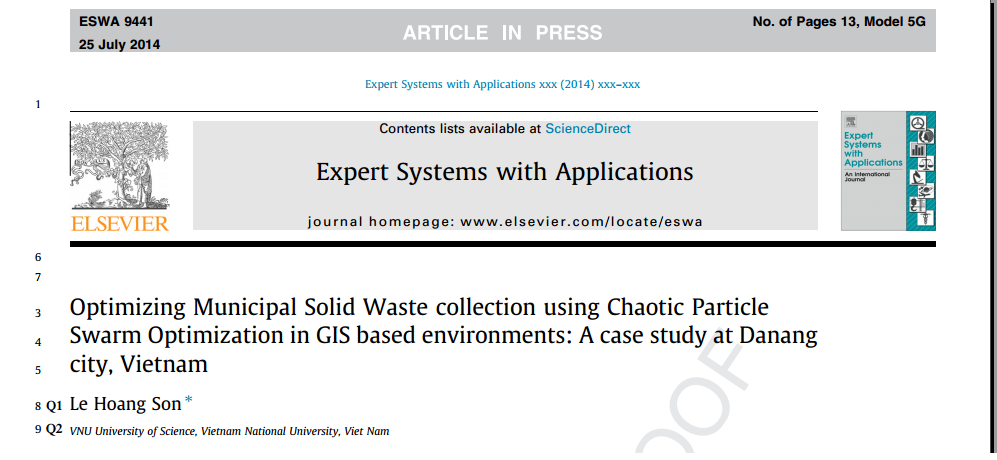
2014 | Elsevier
Municipal Solid Waste (MSW) is an increasing concern at any municipality in the world, and is one of the primary factors that contribute greatly to the rising of climate change and global warming. MSW collection and disposal especially in the context of developing countries are indeed the urgent requirements for the sustainable development of environment and landscape, which rule over the quality-of-life and life expectancy of human being. In this paper, we concentrate on MSW collection at Danang city, which is one of four largest municipalities in Vietnam having high quantity of the average waste load per person and is bearing negative impacts of climate change such as severe weather conditions and natural disasters as a result. A novel vehicle routing model for the MSW collection problem at Danang city is presented. A novel hybrid method between Chaotic Particle Swarm Optimization and ArcGIS is proposed to generate optimal solutions from the vehicle routing model of Danang. Experimental results on the real dataset of Danang show that the proposed hybrid method obtains better total collected waste quantity than the relevant ones including the manual MSW collection procedure that is currently applied at this city.
These guidelines aim to provide a framework for preventing recycling-related plastic and pellet losses, and environmental leakage. The guidelines are useful for a broad spectrum of stakeholders, particularly policymakers and key plastic recycling actors, including informal waste pickers, junkshops, consolidators, and plastic recycling craft villages. The application of these guidelines is expected to contribute to improving production efficiency in the plastic recycling chain while preventing plastic leakage into the environment.
The manual aim to support both formal and informal recycling enterprises in preventing plastic pollution by advocating best practices and promoting proper housekeeping within informal recycling facilities.
The main goal of this study is to evaluate plastic and pellet losses and leakage from the logistical handling and pre-processing operations of informal recycling groups in Thailand, focusing on recovered post-consumer plastic waste and factory processing operations. The focus areas of this study are the Nonthaburi Municipality and Pattaya City.
This study was conducted following on a simplified three-step approach: 1) collect and analyse data and information relevant to plastic leakage from informal sector recycling; 2) engage with key stakeholders; and 3) disseminate the outcomes of the study.
Situation Assessment Report on Plastic Leakage Prevention from Formal and Informal Recycling Facilities, Manila City and Iloilo City - Philippines
Situation Assessment Report on the Prevention of Plastic and Resin Pellet Leakage from Formal and Informal Recycing Factories, Hanoi - Vietnam